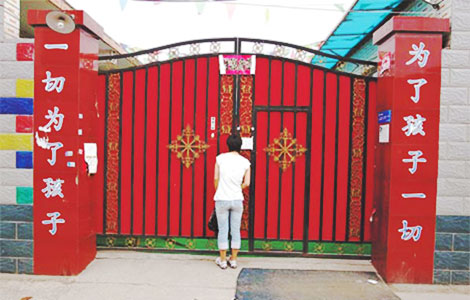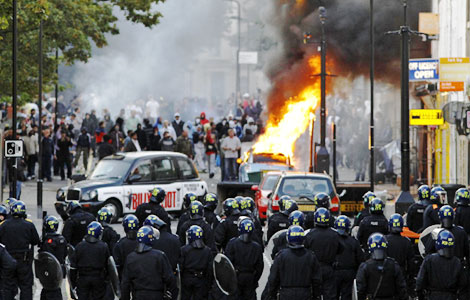Libraries should be heaven for all
Updated: 2011-02-01 07:56
By Xu Xiaomin (China Daily)
|
|||||||||||
A library in Hangzhou, Zhejiang province, garnered nationwide attention a while back, not for its vast collection of books or its range of cultural events, but because it allowed beggars and other disadvantaged people to use its services.
Chu Shuqing, the library's curator, famously said: "I don't have the right to keep them (the beggars) away from the library, but anyone (who doesn't agree) has the right to leave."
The comment caused heated debate on the Internet.
Another library director told the media that this wasn't news because as a public service the library welcomed all people who like reading.
Like many others, the incident grabbed my attention.
"What? A beggar, who may be ill, is allowed to be in a library? How could other readers stand to sit with him side by side?" was my initial reaction.
But the director's response to the media made me ashamed of myself. Since a library is for the public, it should welcome all people who are fair in front of the law and should not judge anyone before exploring the truth.
What makes such "non-news" important?
I think it is because as a society we are used to classifying people into different classes and groups and giving them a label. The wealthy are depicted as the "noble community" in many advertisements, students who return from overseas study are the "elite", while beggars and the homeless are all illiterate and up to no good. Society is inclined to put those in the more attractive groups on a pedestal and tries to cozy up to them, but gives a cold shoulder to those in the more disadvantaged groups, such as beggars.
But is this behavior good for society?
I think the answer is no.
The writer Lung Ying-tai said that the standard by which to measure the civilization of a society is not how many high-rises it has or how many limousines are on the street, but its attitude toward the socially vulnerable groups. I couldn't agree with her more.
To me, the criteria to judge the quality of a society is not how it treats the "elite", but its attitude and treatment toward the more disadvantaged groups.
Big cities, like Shanghai, treat the elite groups very well. The city government has built low-rent apartments for overseas talent working in Shanghai and various policies seem to mostly benefit those with a good educational background.
Some Chinese cities have started building special houses for the homeless, establishing more homes for the elderly and giving subsidies to families before Spring Festival. But compared with all they provide the elite, it is still not enough.
What's worse is that the public's attitude toward the disadvantaged hasn't changed much.
Even though traditional Chinese culture encourages us to show sympathy and compassion for disadvantaged groups, it doesn't encourage us to respect them as other human beings. The result is that people look down on them after showing their compassion.
The comedy actor Zhao Benshan was sued by US audiences when he performed overseas, as during the performance his troupe made fun of the obese, disabled people and people with mental health problems. Zhao didn't understand that although Chinese audiences found making fun of these people amusing it offended audiences in the United States.
The Argentinean writer Jorges Luis Borges once said "I have always imagined that paradise will be a kind of library".
We can start building a paradise by first building a library for everyone, rich or poor.
The author is director of the China Daily Shanghai News Center.
(China Daily 02/01/2011 page8)




